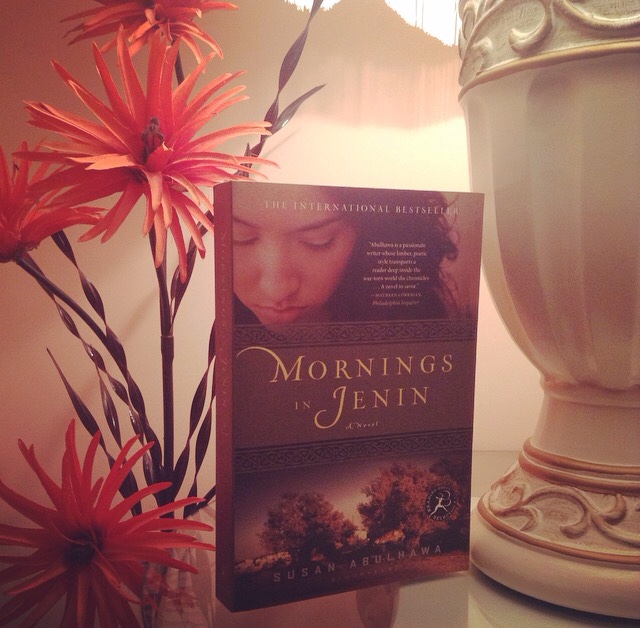Mornings in Jenin
22:13
Mornings in Jenin
- by Susan Abulhawa
- by Susan Abulhawa
5.0/5.0 stars
Confining this novel to a rating is a gross injustice to the earth-shattering untold story of the Palestinian genocide to which the world has turned a blind eye as thousands upon thousands of Palestinians are murdered in cold blood.
Oh God. I have read the book that shattered my soul. The book that tore my heart at its edges until it bled raw and ripped my emotions apart as I wept with the telling of a story that will haunt me for the rest of my life.
Mornings in Jenin. A fictional narrative set around the real-life events of the occupation of Palestine and the raging war that ignites between the states of Israel and Palestine. It follows four generations of a Palestinian family than span the years between 1948 and 2002 and as we travel from the beginning of the Israelite invasion of Palestine to its outright domination, we watch the stories of each generation unfold as villages are burnt to the ground, children become orphans and women become widows, and bulldozers bury bodies into their homeland. We witness a young woman lose her child in the chaos of losing her land, the child who was born an Arab-Palestinian, but raised as an Israeli soldier with not an inkling of his true heritage. We encounter its consequences as his family are forced to go on without him; his older brother falling out of the folds of reality as he is robbed of life's meaning, and his younger sister who never knew him, who lives with the ghosts of her past as her life becomes a bottomless pit of loss and tragedy. Their stories are woven together, criss-crossing and colliding with Palestine's journey into its occupation. We are tossed back and forth in time, into the past and present, into the lives of Arab and Jew, into a world of lost identities and broken souls.
The stories not only transcend decades of time, but they alternate between a first-person and third-person narrative and even the first-person narratives vary with the speaker. It's a brave and bold choice to write like that but Abulhawa pulls it off, and she does so artistically as she fuses the personal with the political, intertwining the lives of multiple characters and weaving them into a violent backdrop of bloodshed and conflict. The third-person chapters are more factual, giving an insight into the tainted history of the promised land whilst successfully connecting with the story to keep it flowing. The first-person perspectives are beautifully written, reflecting the personal anguish of each character, different yet so similar in the inner turmoil that it gives rise to. The poetic prose aches with sadness, longing and desperation and overflows with loneliness as happiness, hope and love have all been drained just as life in Palestine has been drained. It unveils the sheer magnitude of the suffering of Palestinians and through it, I lived and breathed the Palestinian souls that went to hell and back. The writing is so vivid and real. It felt like a time warp; I was living their life at the heart of a conflict decades old.
It is so difficult for me to coherently structure my thoughts on this book. It cut me open and made me bleed. I would put it down only to not pick it back up again because as much as I was itching to consume what I had left to read, I knew that I would be transported to a different time and place through 330 pages that encapsulate the horrors of the Israeli-Palestinian war. And then, there was that chapter. The chapter that stilled the hands turning the pages of my book because I could not stop crying. The chapter that forced me to stop reading because this wasn't an exaggerated fictional concoction of a war-torn country, but the exposed truth of the massacre of Palestine.
This novel paints a picture of the intractable inhumanity that is bestowed upon Palestinians, but in doing so, the author doesn't depersonalise Israelis, nor does she ignore the troubles that they too face at the hands of this war. There are moments from the perspective of the soldiers of Israel when, as much as their actions cannot be justified, they can be understood. She has underlined the fact that sometimes, your own life is not a choice.
Never before have I read a book that so strongly affected me, nor do I think I will again. It put me in a head-lock and suffocated me, tormenting me to the point where I am incapable of picking up another book. It has left me with the biggest book hangover of all time. It has left my heart in Palestine. It is the masterpiece of all masterpieces; Abulhawa put pieces of her heart into this book, and she took away pieces of mine.
 |
"War. The word detonates a baggage of dread which I have lugged on my back since I was five years old. Since 1948, when war and I were formally introduced. It makes my blood run cold" ~ Amal |
 |
"When we die, we return to the land. In a way, she owns us. Palestine owns us and we belong to her" ~ Amal |
| "To have lived so long, only to be crushed to death by a bulldozer. Is this what it means to be Palestinian?”


























0 comments